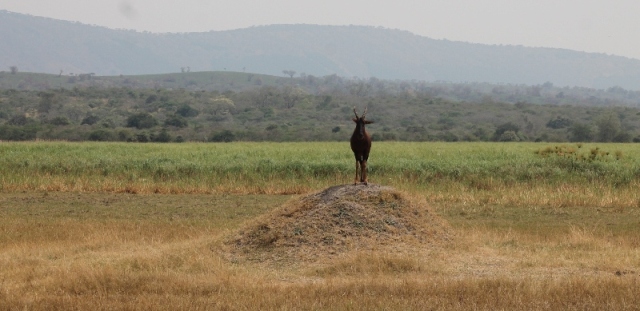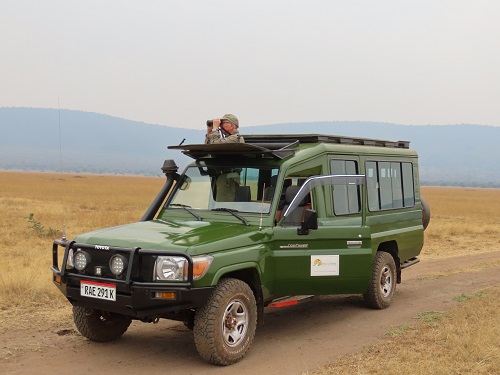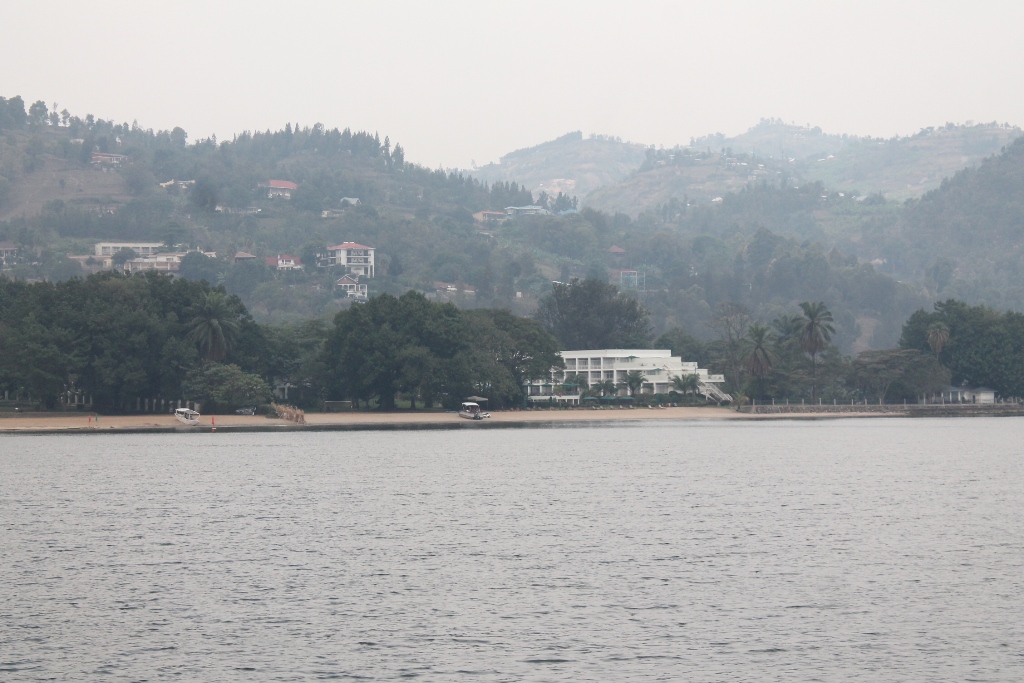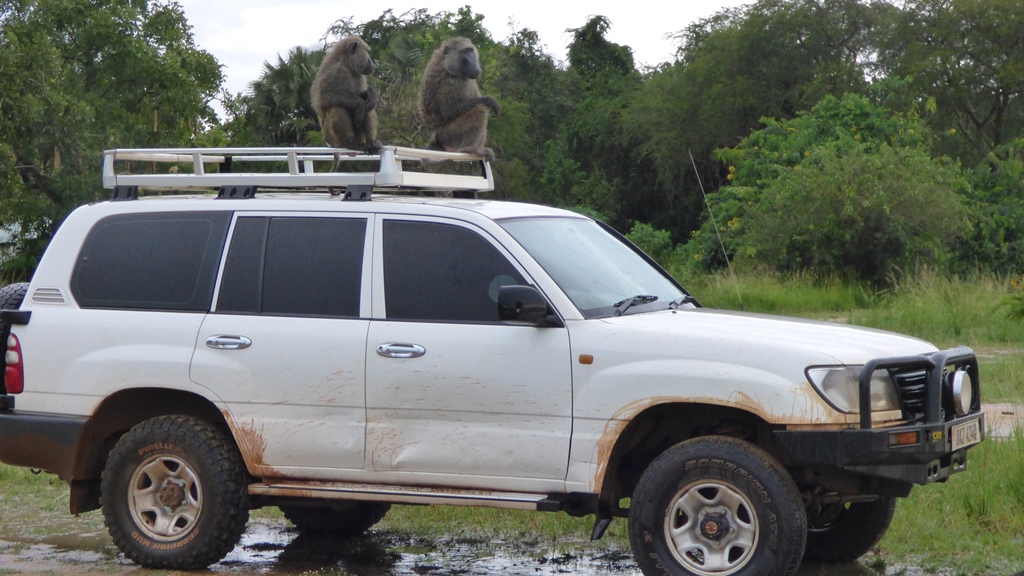
When it comes to the classic big game safari, Rwanda has just one place to go and that is Akagera National Park. Akagera national park located in the east of the country protects the country’s only savannah environment as the rest of the country is mostly mountainous and forest.
An area that had been reduced to nearly a bushland where poachers had leeway thanks to the misrule & conflicts of the yesteryears, Akagera National Park is now on the way to becoming one of the top wildlife safari destinations in the region – thanks to African Parks organization that has ensured that this is one of the most protected parks on the continent. All the “big five” are now present in the park after the reintroduction of rhinos and lions whose numbers are steadily growing. Recent periodic censuses of wildlife in Akagera National Park have shown a steady increase in numbers of all animals in the park. Safaris in Akagera are becoming more exciting every other day as one can now find a herd of elephants (previously you would be lucky to spot a solitary individual far away), and have better sightings of other big game such as giraffes, buffaloes, zebras, and antelopes, among others.
One can therefore look forward to a rewarding big game safari experience in Rwanda other than just the famous gorilla trekking in the Virunga mountains or the chimpanzee trekking in Nyungwe forest.
But, as a park that is steadily recovering her wildlife numbers one may ask if there is a best time to visit Akagera National Park and also if there is a time one should avoid the park?
Dry season vs Rainy Season in Akagera National Park
You will visit Akagera either during the dry season or the wet season which are the two weather seasons of Rwanda.
Visiting Akagera during the dry season

The dry season runs from June to early September and from December to February.
Most people visit Akagera National Park during the dry season. The dry season provides the best weather for the safari trip to Akagera because the trails are dry allowing you explore every possible trail of the park and reach every possible corner of the park to discover more wildlife. The dry season also allows you spend as much time out in the bush as possible without the interruption of rain.
The downside of the dry season is that, during the really hot time, such as the month of August, the animals move closer to the permanent water sources and to areas with more fresh grass which may be far away from the safari trails. You may therefore see fewer animals during a certain time of the dry season, especially August which is the hottest month.
Visiting Akagera during the wet season
The wet season runs from March to May and late September to November.
The wet season is not a favorite time for many to travel to Akagera National Park. One, because the rains may interrupt your experience while out in the bush making your safari drives shorter and therefore less productive. The safari trails also become muddy and may be unpassable in some areas limiting the access of some parts of the park. A sturdy 4X4 safari truck is highly recommended if you will visit Akagera during the wet season. Also, the grass is taller and bushes thicker which could make sightings of smaller animals much harder.
On the other hand, the wet season could be the best time to visit Akagera National Park. The scenery is surreal during the wet season and the lush greenery is breathtaking.
Animals will tend to be closer to the safari trails during the wet season. They do not have been closer to the unreachable water sources as there is enough water in pools throughout the park. So as much as the rains will make some parts of the park unreachable, some of the big animals may be easier to find during this time than during some time when it is really hot during the dry season.
Is there a time to avoid Akagera National Park?
There is not such a time that one will go to Akagera National Park and fail to see plenty of animals or not enjoy the savannah. It is only if you will try to compare Akagera with the great safari destinations in the region such as Masai Mara of Kenya or Serengeti of Tanzania or Murchison Falls Park of Uganda, that you will be disappointed. Akagera is a recovering park but that is making tremendous strides and will catch up soon. If you have visited any of these popular reserves in the East Africa region and want to supplement your experience then do not go to Akagera, or if you go, please keep an open mind and enjoy the bush, because what Akagera may luck in a big volume of animals makes up with an amazing scenery.
You may also not want do a safari trip to Akagera during August if extremely warm weather is a turn off for you. Avoid going during April too if you are not ready to be inconvenienced by near daily heavy down pours as this the wettest month of the rainy season.
Leave a comment Cancel reply
Archives
- March 2025 (1)
- February 2025 (1)
- January 2025 (1)
- November 2024 (2)
- October 2024 (3)
- May 2024 (1)
- February 2024 (1)
- January 2024 (2)
- November 2023 (2)
- September 2023 (1)
- July 2023 (8)
- June 2023 (14)
- May 2023 (1)
- April 2023 (1)
- March 2023 (3)
- February 2023 (6)
- January 2023 (6)
- December 2022 (1)
- November 2022 (1)
- October 2022 (2)
- September 2022 (1)
- August 2022 (1)
- May 2022 (17)
- April 2022 (5)
- March 2022 (7)
- February 2022 (3)
- January 2022 (7)
- December 2021 (7)
- November 2021 (2)
- October 2021 (1)
- September 2021 (2)
- August 2021 (2)
- July 2021 (6)
- June 2021 (1)
- May 2021 (4)
- April 2021 (3)
- March 2021 (2)
- February 2021 (2)
- January 2021 (14)
- November 2020 (2)
- September 2020 (1)
- March 2020 (1)
- February 2020 (1)
- August 2019 (1)
- September 2016 (1)
- June 2016 (1)
- May 2016 (1)

